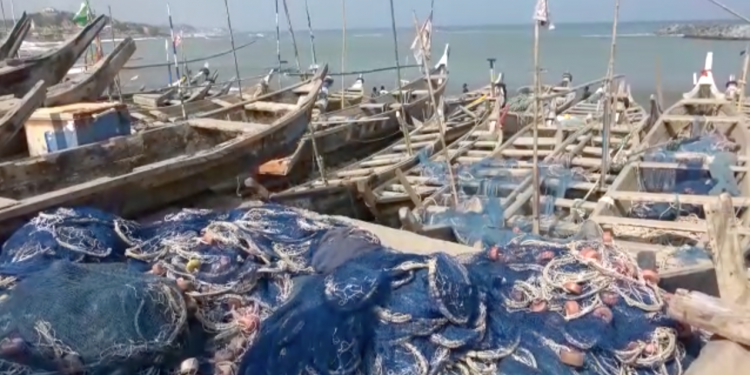The Ministry of Fisheries and Aquaculture Development has lifted the ban on the 2023 closed season for canoe and inshore fishers in Ghana.
During a vibrant event held in Adina, Volta Region, the Ministry praised the fishers for their cooperation during the closed season and issued a stern warning of severe punishment for non-compliant individuals in the future.
Since 2015, the Ministry has enforced a one-month closed season in accordance with Section 84 of the Fisheries Act, 2002 (Act 625). This period, known as the biological rest period, aligns with the spawning season of fish stocks. By refraining from fishing during this time, the fish are given the opportunity to lay eggs and contribute to replenishing the fish population depleted by fishing activities or natural events.
This year’s closed season, the eighth since its inception, ran from July 1, 2023, to August 1, 2023.
Moses Anim, the Deputy Minister for Fisheries and Aquaculture Development, expressed gratitude to the fisherfolk for their compliance and emphasized that strict measures would be applied to those who flout the regulations in the future.
Jojo Solomon, Chairman of the Ghana National Canoe Fishermen Council, highlighted the positive impact of the closed seasons on their catch. He urged the fishing community to refrain from illegal fishing practices to fully capitalize on the benefits of the closed season.
In addition to the successful closed season, Jojo Solomon stressed the need to depoliticize the fisheries industry to safeguard the livelihoods of fishers. He questioned the involvement of non-fishers in the distribution of premix fuel, which is crucial for the fishing industry.
Maxwell Lugudor, the MCE for Keta, called for support from the marine police to ensure the effective enforcement of future closed seasons. He pointed out the challenge of some defiant fishers crossing the border to neighboring Togo for fishing, undermining the intended impact of the closed season.


